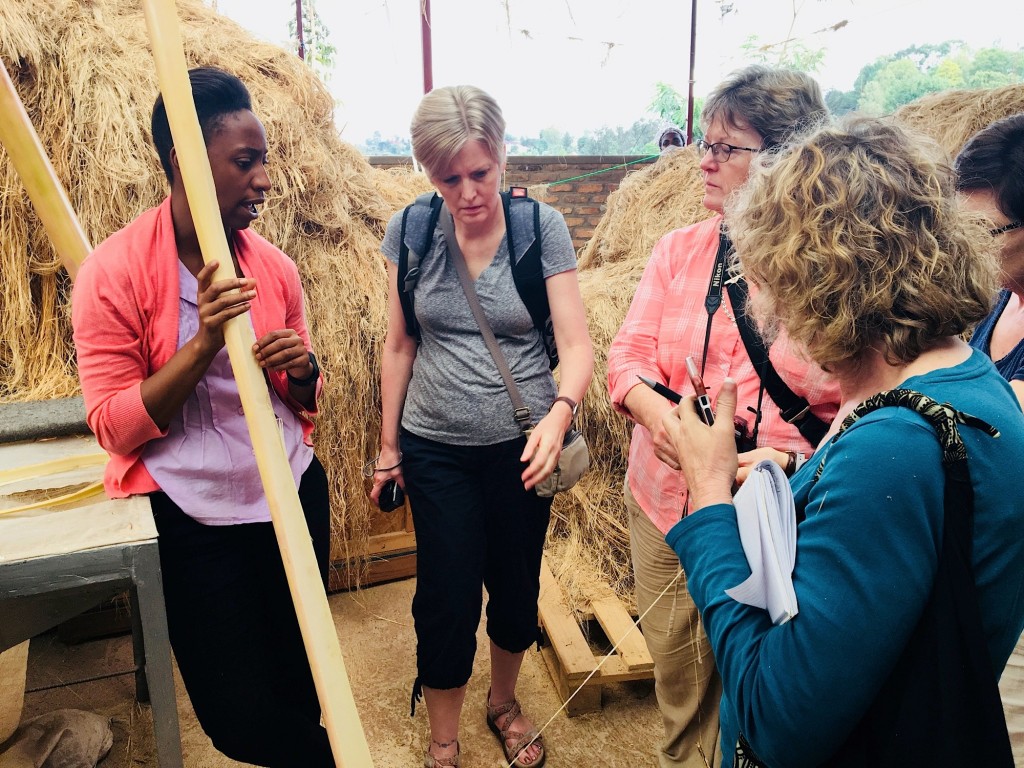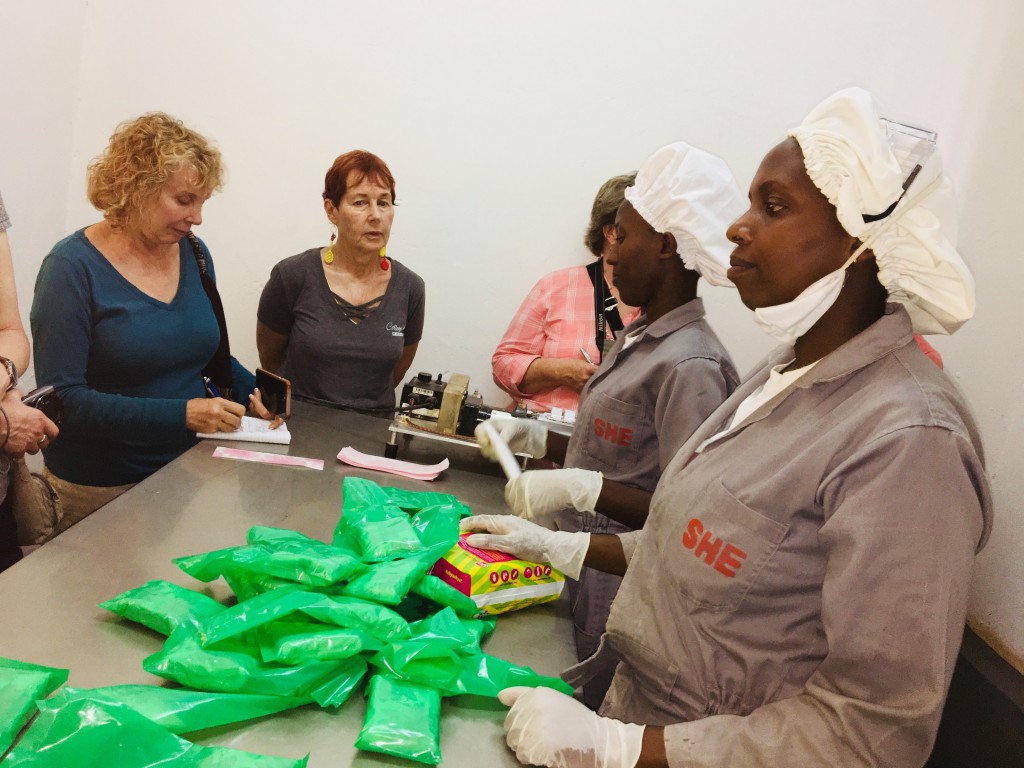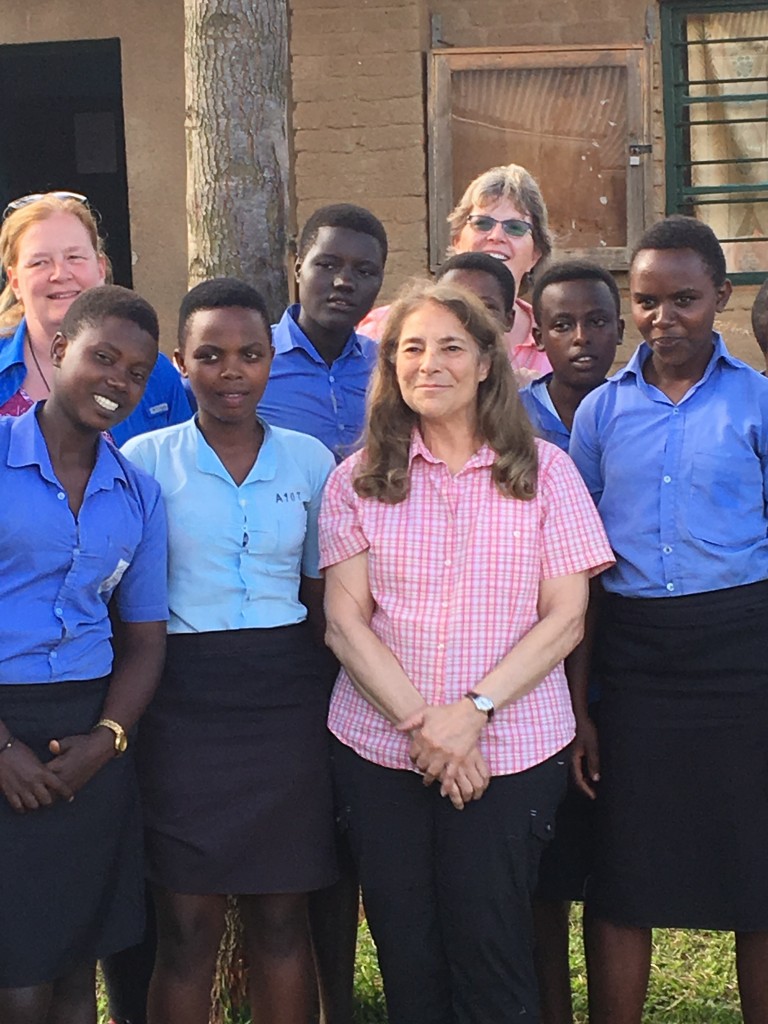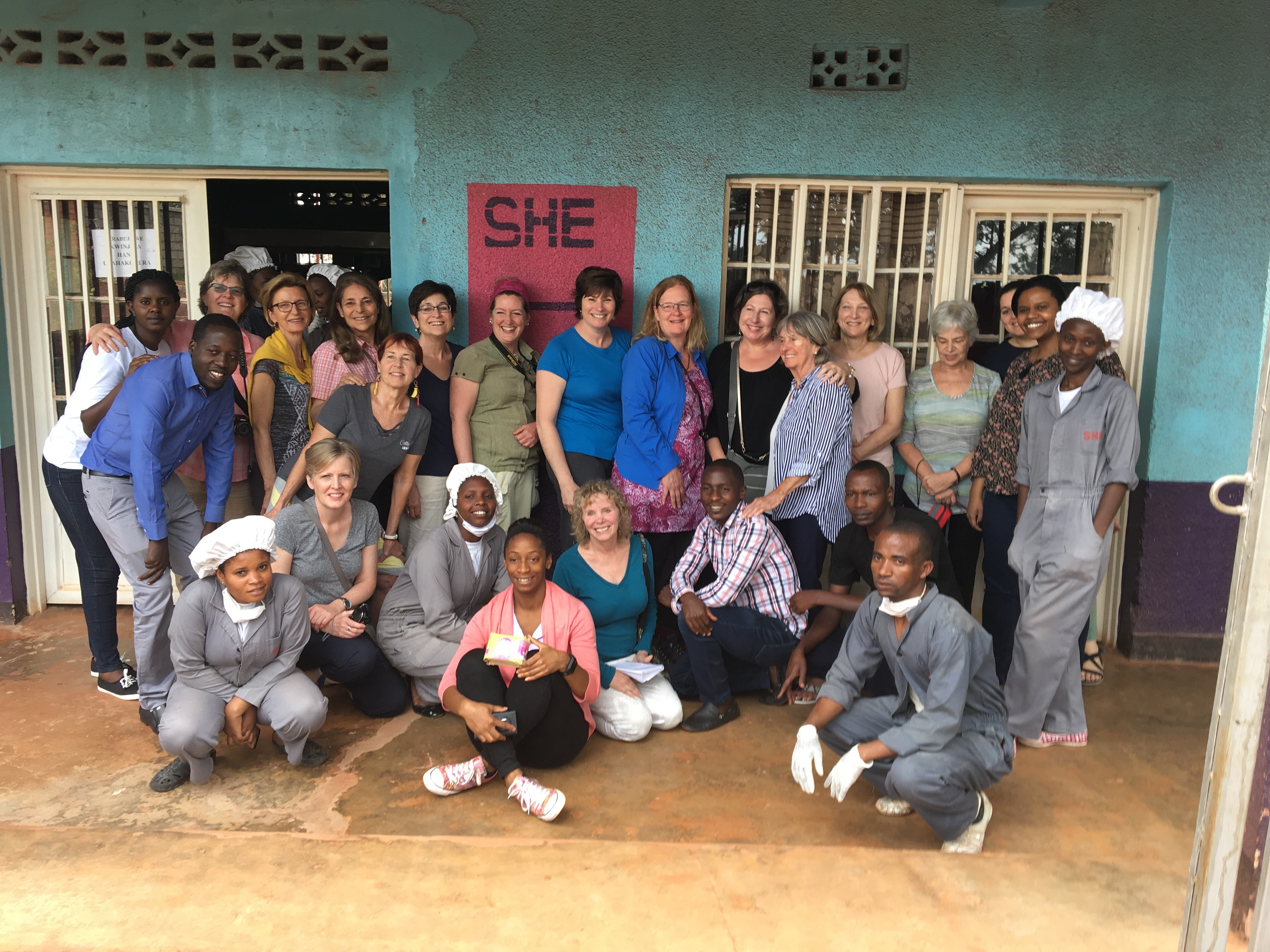
Rwanda 2018 – Day 4 – Visiting Our First DFW Grantee
By Vicki Meitus (Denver, CO)
It was day 4 and after breakfast, we were off to visit one of the DFW grantees, SHE (Sustainable Health Enterprises). As we boarded the bus for our venture into the countryside, we were pleasantly surprised to be joined by Connie Lewin, Director of Strategy for SHE (and a DFW Board member) and Danielle Raso, Business Development Associate. Both work in the New York office, and it was an amazing coincidence that their trip to Rwanda overlapped with ours. We were also joined by Flora Ufitinema, Field Operations Associate, and Daria, Business Development Manager, who both reside in Rwanda.
We headed northeast for the two-hour drive to Ngoma. As we ventured further away from Kigali, our scenery turned to men and women balancing water containers, plates of bananas, bags of potatoes as well as numerous materials and supplies on their heads. Men were waiting in groups on bicycles with seats on the back to use as taxis. The fields were lush with crops of corn, bananas, rice/maze, and vegetables. Natural irrigation was evident in the “Land of One Thousand Hills”. The countryside was clean but dusty from the unpaved roads, and we often witnessed women sweeping their driveways and streets. Children walked down the roads and fields managing herds of goats and were often coated with the red, dry dust.
SHE was founded by Elizabeth Scharpf in 2009. She learned that women and girls missed work and school because of menstruation and lack of affordable pads. “The SHE mission is to invest in people and ideas that are typically overlooked to drive social and economic change. Its first initiative, SHE28, is addressing girls’ and women’s lack of access to affordable menstrual pads, causing significant costs to their health, education, productivity, and dignity. SHE stems these costs with a franchise model that manufactures and distributes affordable, eco-friendly menstrual pads by sourcing local, inexpensive raw materials (banana fibers) and leveraging existing networks” (from the DFW Fact Sheet February 2015).
Our first stop was the production factory. Eric, Production Manager, met us along with Maombi (Supply Chain Manager), Leah (Global Technical Director), and Nadine (Production Lead). After being split into two groups, we toured the facility. The process started with fiber from the trunk of the banana tree. It was collected, and we watched how the fibers were prepared, processed and the pads assembled. Lastly, ten pads were packaged together for distribution to kiosks in the villages.
Our next stop was visiting kiosks in the local village to see the product on the shelves. We saw how they are now available at an affordable price for the local women and girls.
On the way to a local school, our group stopped for a buffet lunch at St. Joseph’s Hotel and Restaurant. We enjoyed a meal of rice, pasta, sweet potatoes, white potatoes, chicken, beans, squash and soup topped off with bananas for dessert — a common menu on our trip.
Arriving at G. S. Mukarange School, we were greeted by Pascal, the Head Master. There are over 2,500 students (primary and secondary) with 45 teachers. Pascal explained how they have two ‘girls’ rooms’ available for the girls when needed during menstruation. The rooms are stocked with a bed, soap/water, extra clothes, and pads. In the past, girls would miss school during their menstrual cycle due to old myths. For example, boys thought that menstruation was a disease they could catch, or if a girl walked through a pumpkin patch while menstruating, the pumpkins would not grow. There is a ‘SHE Club’ at the school for both girls and boys. They are educated on the facts and taught how to care for their ‘sisters’ during menstruation. The DFW travelers, along with schoolchildren involved with the ‘SHE’ club, then broke into two discussion groups. The children shared their thoughts on what they have learned. It was common to hear the girls talk about how they did not have to miss class anymore, they could approach teachers and ask for guidance, learn the proper way to use a pad, and if they were uncomfortable, they could go to the girls’ room and lie down. The boys mentioned that they now knew having a menstrual cycle was not a disease they could catch if their sisters cooked during their cycle.
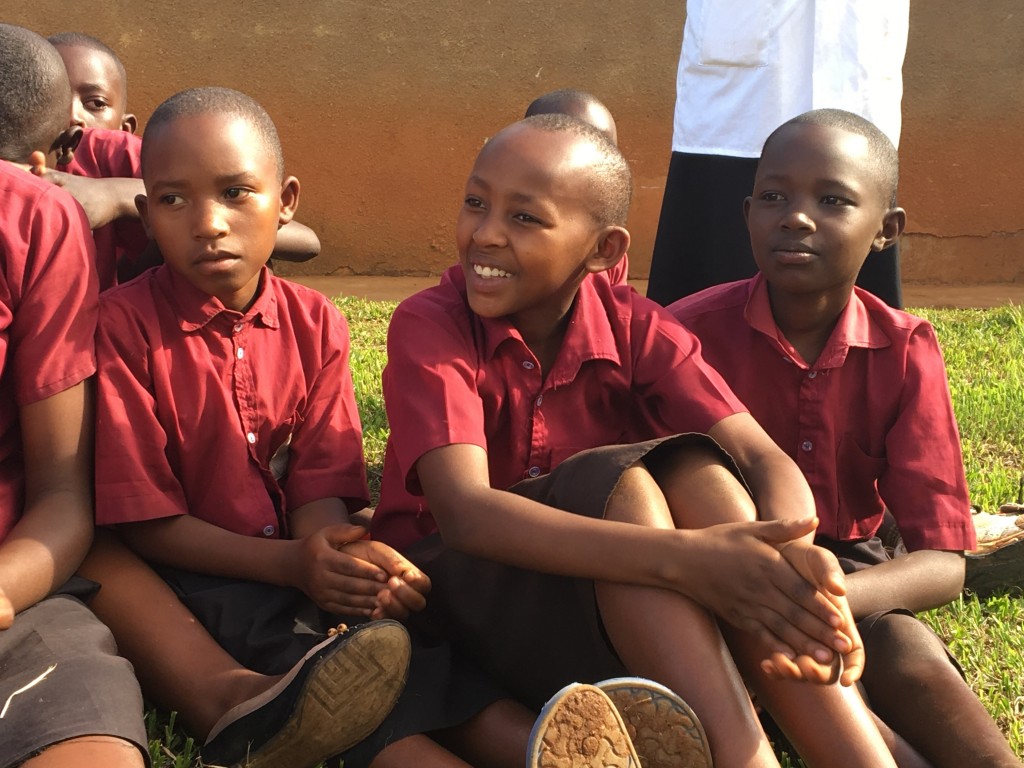 After an incredible day learning about SHE, we headed back to Kigali for a quick rest before we headed to dinner at a local restaurant, Heaven. Heaven is located in Kigali’s city center with breathtaking views and incredible food. Heaven is proud to be “Made in Rwanda”: the restaurant was custom-built by local craftspeople, and they showcase Rwandan arts & crafts that support artisan cooperatives throughout the country. After dinner, we explored and shopped at the Azizi Boutique, Niyo Arts Gallery and Heaven products. One Heaven product was a book written by the owner Josh Ruxin (an American), A Thousand Hills to Heaven: Love, Hope and a Restaurant in Rwanda telling the story of the restaurant. Then it was off to bed to get ready for another amazing day in Rwanda.
After an incredible day learning about SHE, we headed back to Kigali for a quick rest before we headed to dinner at a local restaurant, Heaven. Heaven is located in Kigali’s city center with breathtaking views and incredible food. Heaven is proud to be “Made in Rwanda”: the restaurant was custom-built by local craftspeople, and they showcase Rwandan arts & crafts that support artisan cooperatives throughout the country. After dinner, we explored and shopped at the Azizi Boutique, Niyo Arts Gallery and Heaven products. One Heaven product was a book written by the owner Josh Ruxin (an American), A Thousand Hills to Heaven: Love, Hope and a Restaurant in Rwanda telling the story of the restaurant. Then it was off to bed to get ready for another amazing day in Rwanda.

